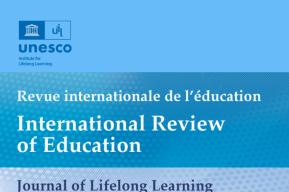News
International Mother Language Day: Countries must implement mother language-based education and learning programmes
To mark International Mother Language Day, the UNESCO Institute for Lifelong Learning (UIL) is joining calls for countries to support mother-language education and pursue a policy of multilingual education.

Children, young people and adults require learning opportunities in their mother tongue, which can be combined with the official language of instruction, an approach known as multilingual education. Multilingual education helps learners to learn better with more confidence. At least 40 per cent of the more than 6,700 languages spoken around the world are threatened with extinction in the long term, as the number of speakers dwindle and children are taught in their society’s dominant language rather than the one they speak at home.
Mr David Atchoarena, Director of the UNESCO Institute for Lifelong Learning, said: “Offering education in the mother tongue is essential to transmitting and preserving traditional knowledge and culture. Children, youth and adults require learning opportunities that are relevant to their lives and needs. This also includes having access to an education in their own language. Evidence shows that such provision contributes to improving learning and developing confidence and self-esteem.”
UNESCO’s World Inequality Database on Education indicates that, globally, children taught in the language they speak at home are 30 per cent more likely to read with understanding by the end of primary school than those who do not speak the language of instruction at home. Evidence also shows that children’s social skills are improved by learning in their mother tongue.
Celebrations in the UIL host city of Hamburg, Germany
Home to citizens from 175 countries, UIL’s host city of Hamburg, Germany, boasts a vast cultural diversity. Honouring the city’s tradition of internationalism, the Hamburg Institute for Teacher Education hosted a celebration of International Mother Language Day on 18 February 2023, with a keynote speech from Ms Rakhat Zholdoshalieva, UIL Team leader, and representation from the Hamburg Ministry of Education and a wide variety of civil society organizations.
Ms Zholdoshalieva told the 300-plus participants: “We need to embrace multilingual education based on the mother tongue from the earliest years of schooling. Based on empirical evidence, we know it works. It is vital to share knowledge and experience to promote multilingualism in lifelong learning. Through events such as this one, we can connect with people and organizations, and learn from and with each other.”
UNESCO leads the Indigenous Languages Decade 2022-2032, a 10-year action plan to draw the world’s attention to the critical loss of Indigenous languages and the urgent need to preserve, revitalize and celebrate them.
Further resources









